Use our hero showcase to learn about US Bill of Rights Day, which commemorates the anniversary of the ratification of the first ten amendments to the US constitution, also known as the Bill of Rights.
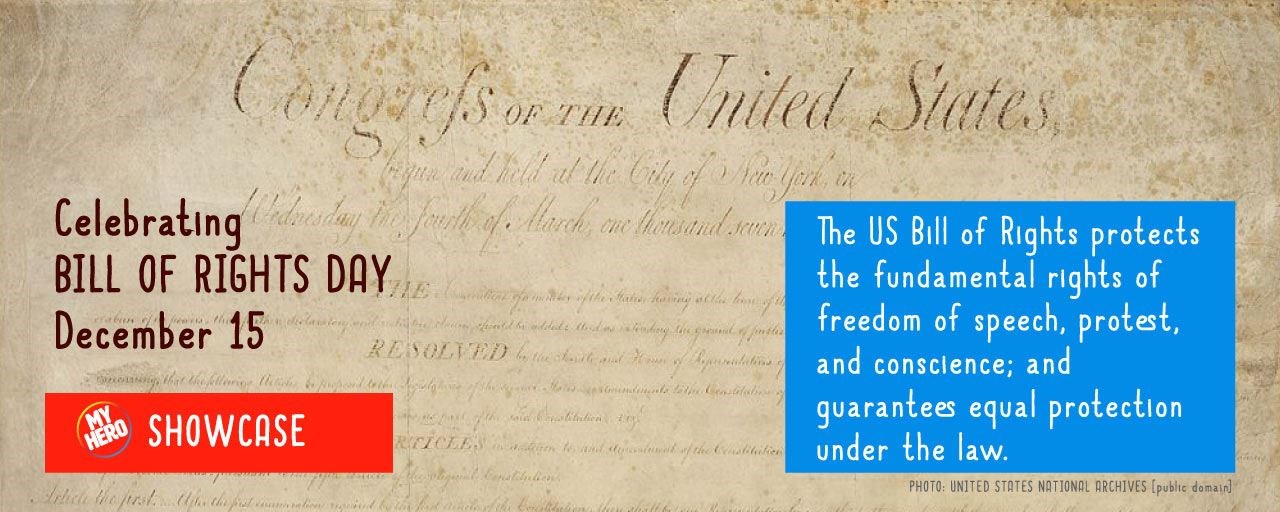
Teachers: Visit the free MY HERO Lesson Plan for Bill of Rights Day. Includes discussion guide and learning outcomes.
"A bill of rights is what the people are entitled to against every government on earth, general or particular, and what no just government should refuse, or rest on inference."
- Thomas Jefferson
President Franklin D. Roosevelt designated December 15 Bill of Rights Day by presidential proclamation in 1941. This day is observed by displaying the flag of the United States on public meetings and various ceremonies.

Desmond T. Doss, a Seventh Day Adventist, practiced non-violence while saving many lives during WWII as a military medic.


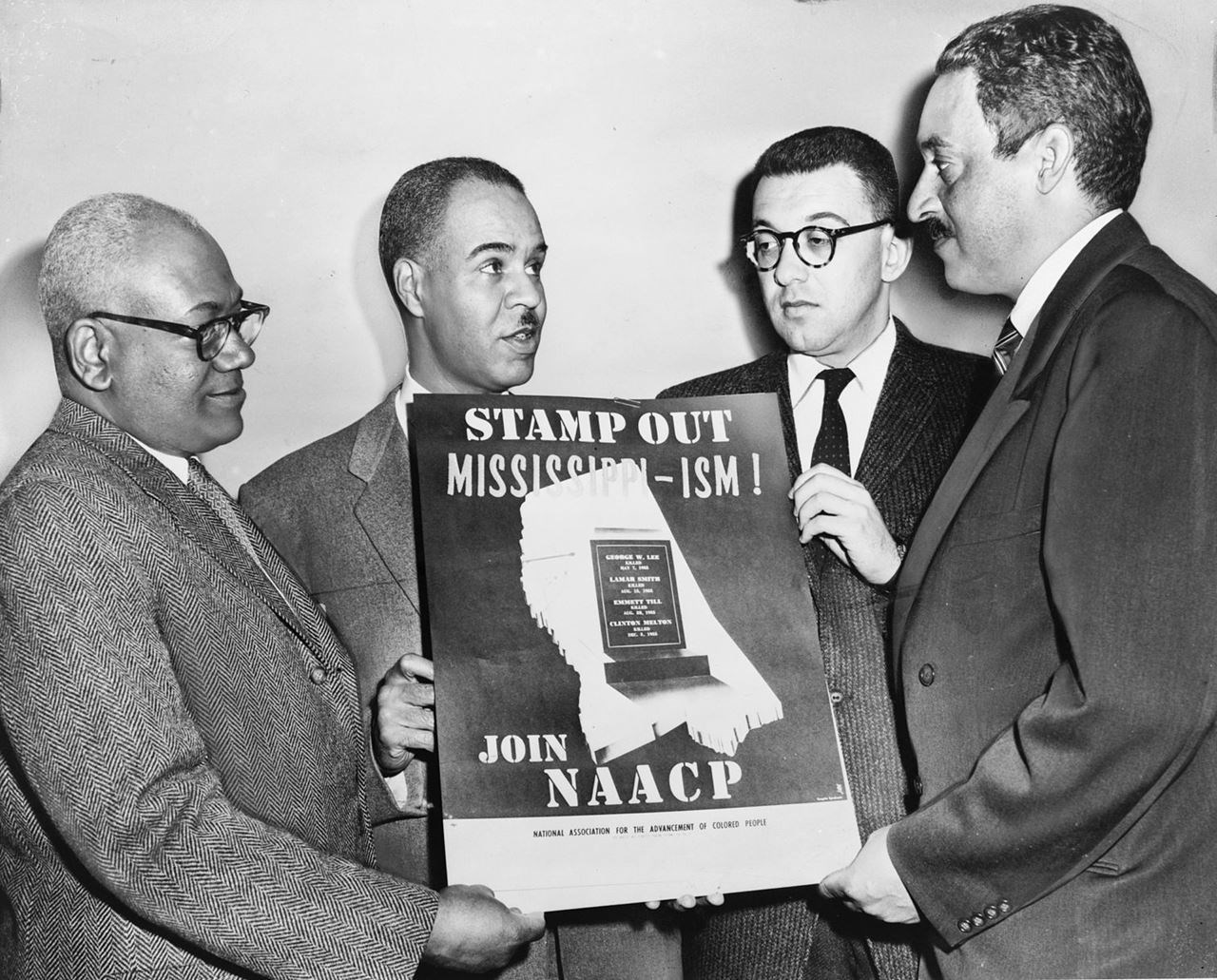
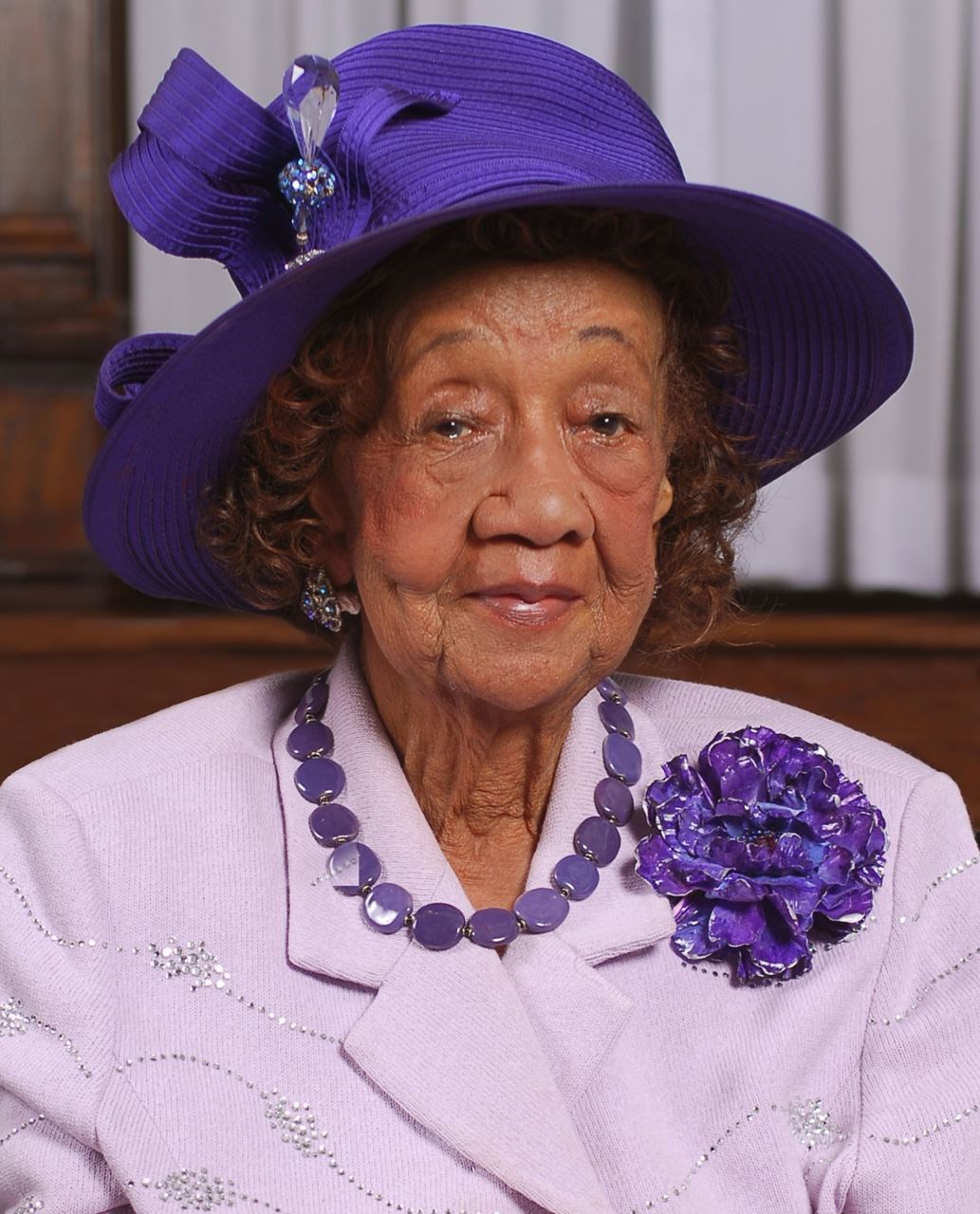
Why Is the Bill of Rights Important?
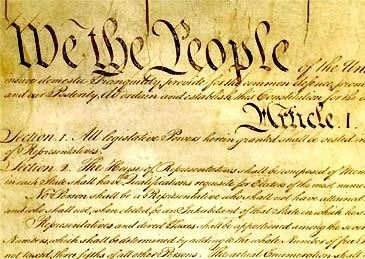
The US Constitution was drafted in 1787 at the Philadelphia Convention, which established a system of checks and balances. This divided federal authority between the separate but co-equal Legislative, Judicial, and Executive branches of government.
There was a delay in ratifying the Constitution over a disagreement about whether it should include a declaration of individual rights.
The Federalists, led by Alexander Hamilton, James Madison, and John Jay, supported the ratification of the Constitution and a centralized government. They were against including a bill of rights because it might imply that the rights that were unstated were not protected.
The Anti-Federalists were those who opposed the ratification of the 1787 version of the Constitution. They differed in their ideas of what the government should look like. Famous Anti-Federalist voices were Thomas Jefferson, Patrick Henry and George Mason. In general, they were in favor of stronger localized government. Most importantly, they wanted a bill of rights that guaranteed individual rights.
According to the National Archives, "The Constitution might never have been ratified if the framers hadn't promised to add a Bill of Rights."
The Bill of Rights was drafted by James Madison. It makes up the first 10 amendments to the United States Constitution. They are summarized below:
1 Freedom of religion, speech, the press, assembly, and petition the government to redress grievances.
2 The right to keep and bear arms.
3 No quartering of soldiers in time of peace without owner's consent, and in war as prescribed by law.
4 Freedom from unreasonable searches and seizures.
5 Restricts government's prosecution of persons, no double jeopardy, freedom from self-incrimination, right to due process of law.
6 The right to a speedy, public trial with right to counsel.
7 The right in civil cases of trial by jury.
8 No excessive bail or fines, or cruel and unusual punishment.
9 Rights enumerated do not deny or disparage other rights retained by the People.
10 Powers not delegated to the US are reserved to the states or the people.
As the ACLU states, "The idea of individual rights is the oldest and most traditional of American values."
They were passed by Congress on September 25, 1789 and ratified in 1791.
You can see a copy of the Bill of Rights, which is on display in the rotunda of the National Archives Building in Washington, D.C.
Learn About the Authors of the US Bill of Rights Through Hero Stories
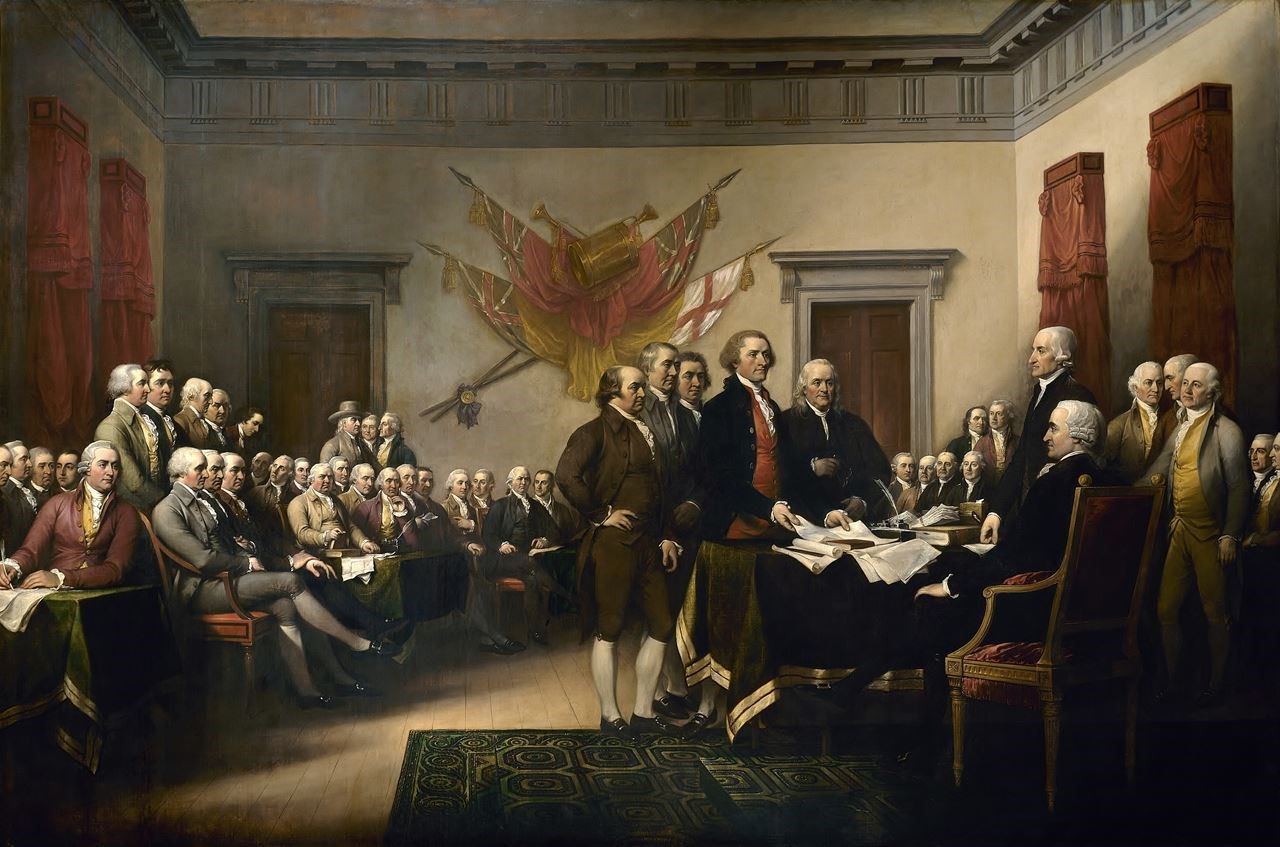
"With the knowledge of these bright leaders, the founding of the Americas brought numerous changes to the world itself."
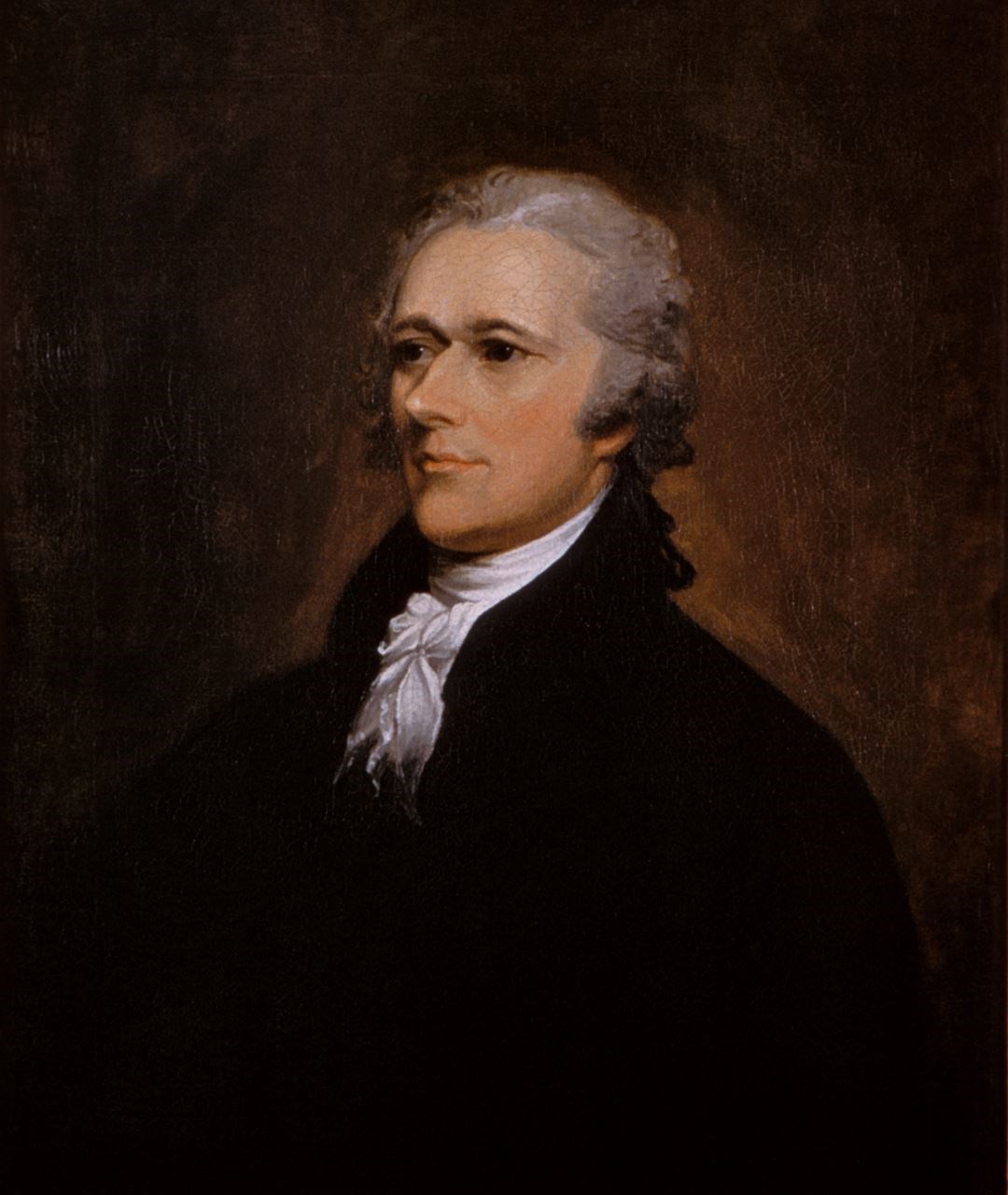
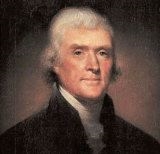
"Determine never to be idle... It is wonderful how much may be done if we are always doing" -Thomas Jefferson.

James Madison drafted the Bill of Rights, which safeguarded individual liberties and states' rights.
Justice Sandra Day O’Connor, who has served over 25 years on the Supreme Court, founded iCivics in 2009 to restore civic education in US schools. Civic education increases civic participation!
Through iCivic's interactive games, you can play the role of a judge, a member of Congress, a community activist or the President of the United States, and learn about their job.
iCivics is used by over 150,000 teachers and 5 million students!
Civics Education Resources from Annenberg Classroom
A Brief History of the Bill of Rights from the ACLU
Learn about the Founding Documents of the United States from the National Archives
Organizer created on 12/11/2017 3:24:35 PM by Staff
Last edited 12/2/2019 11:40:58 AM by Laura Nietzer